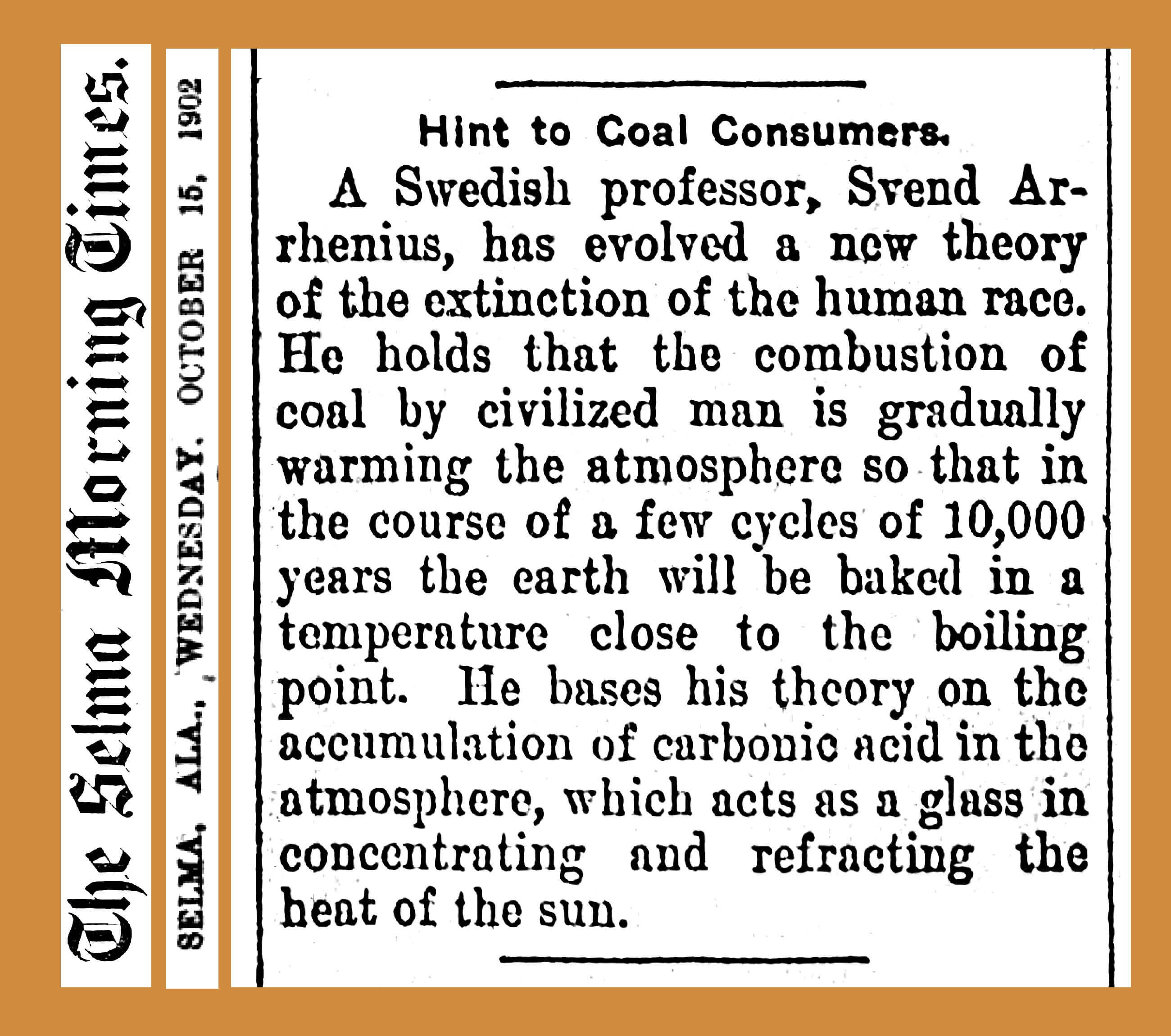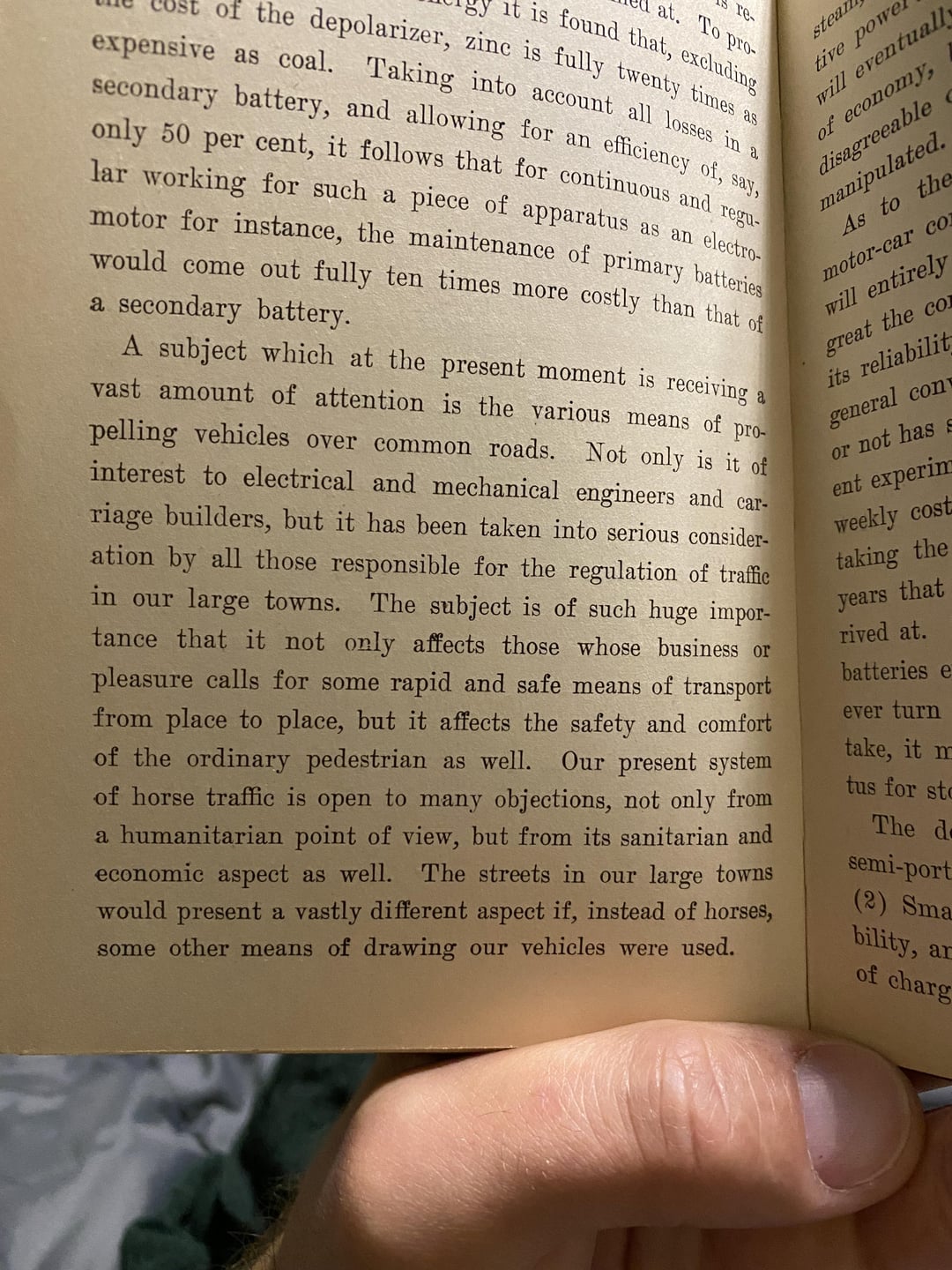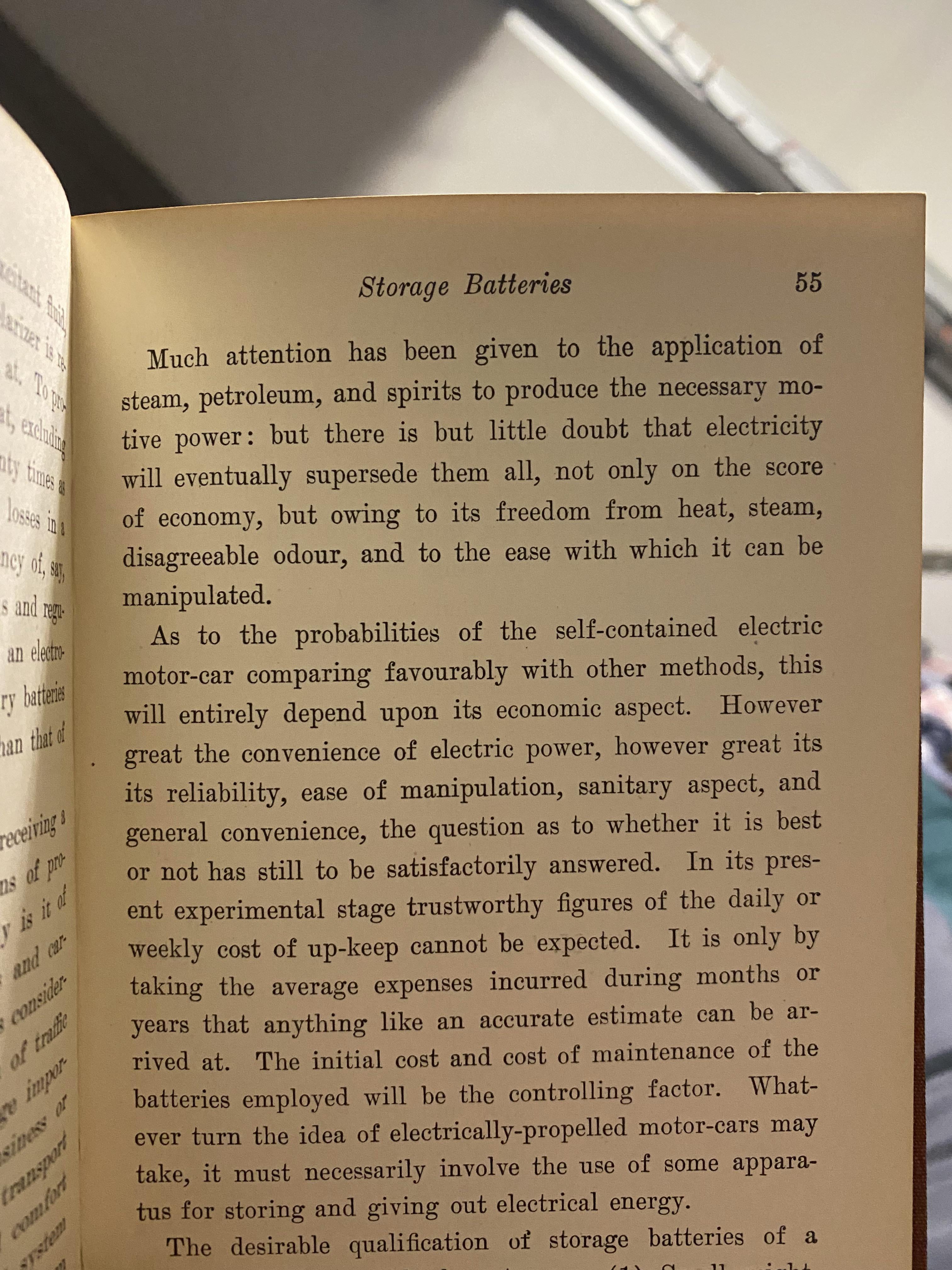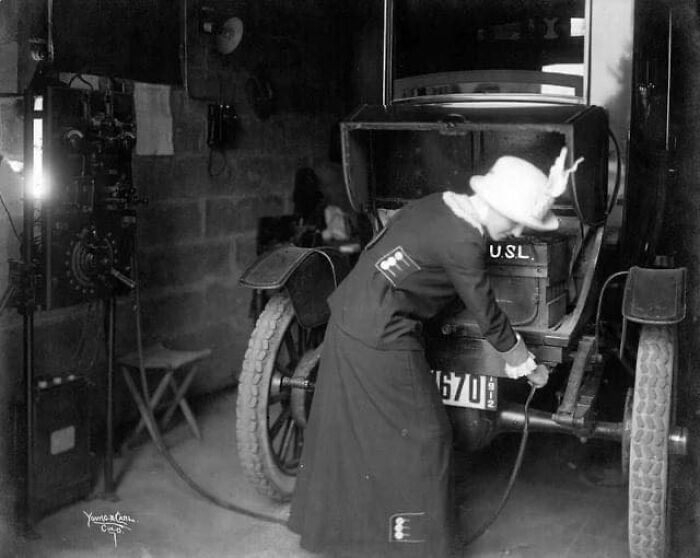The future was stolen from us a century ago.
HistoryPorn
If you would like to become a mod in this community, kindly PM the mod.
Relive the Past in Jaw-Dropping Detail!
HistoryPorn is for photographs (or, if it can be found, film) of the past, recent or distant! Give us a little snapshot of history!
Rules
- Be respectful and inclusive.
- No harassment, hate speech, or trolling.
- Engage in constructive discussions.
- Share relevant content.
- Follow guidelines and moderators' instructions.
- Use appropriate language and tone.
- Report violations.
- Foster a continuous learning environment.
- No genocide or atrocity denialism.
Pictures of old artifacts and museum pieces should go to History Artifacts
Illustrations and paintings should go to History Drawings
Related Communities:

Mr. Roger's also did a whole show on riding around in one of his buddies electric cars.
An electric car must have been pretty dirty back then. Most power was made by much less efficient coal generators after all.
I am not saying that this is still the case today, quite the opposite.
(Although no car is always better than a car)
Well yeah, but an ICE car would've been pretty dirty too. For how light the cars were, they used a lot of fuel, and there was no emissions equipment whatsoever.
We've gotten pretty good at ICE efficiency. It's not as good as EV efficiency, but it's come a LONG way in the last 100+ years.
She even has a phone in the garage. :)
I miss big clunky levers, switches and dials. All the best tech went CHAWNK.
I would love to know the power capacity & range for these cars
The cars were advertised as reliably getting 80 miles (130 km) between battery recharging, although in one test a Detroit Electric ran 211.3 miles (340.1 km) on a single charge. Top speed was only about 20 mph (32 km/h), but this was considered adequate for driving within city or town limits at the time.
From Wikipedia
From a 110 year old book I picked up recently:


It’s interesting to see this and be reminded that 110 years ago electricity was more readily available than gasoline. It took time for gas stations to become widespread. Even in the post-WWII era it was not uncommon for drivers to encounter signs warning that the last gas station was approaching and there would be no more for another 60+ miles (100+ kilometers, I suppose). It took decades to expand the gasoline distribution network.
In one sense electric vehicles are in the same boat today, at least in the US. From the standpoint of being able to charge at home, electric is more convenient and current models on sale likely have more than enough range for most people’s daily (or probably even weekly) commute. The cost advantage is also still there when charging at home. However, if you’re going on a roadtrip you’re much more likely to face long stretches without a fast charger, and probably no signs on the road warning you. It’s up to drivers to plan ahead to make sure they’ll have enough charge to make the next charger (and potentially have a backup location in case their first choice is full or broken). With the ubiquity of gas stations, and perhaps even more so GPS navigation on our phones, most drivers aren’t used to doing much planning when going on road trips anymore.
What is the title and who is the author of this book?
I think a lot of electric cars have trip planning built in these days.
With mine, I just punch in my destination and it routes and sets up chargers for me to hit. That said, I've never gone further than 900 miles on the west coast between Northern and Southern California, and a trip through the desert to Las Vegas, but it's always been smooth sailing.
Storage Batteries Stationary and Portable by J.T. Niblett, M. I. E. E. Copyright 1911/1912.
Looks like Archive's got it: https://archive.org/details/storage_batteries_1912/page/n3/mode/2up
I'm fairly convinced that the reason internal combustion won - even though it would regularly break your wrist when you started it - was that it made loud noises.
Back then cars were a luxury, and if you're buying something flashy you want people to notice you. A gasoline engine sputtering down the road would draw far more attention than an electric motor, so people bought those.
From an engineering standpoint, liquid fuels have a far greater energy-to-weight ratio than batteries. Some of the largest advancements in combustion engines for the purpose of conveyance were made during the world wars. Noise was something they actively fought against. Loud tanks are scary, but unexpected tanks are much scarier. If they really needed it to be loud, sirens exist (see: Jericho siren). The energy-to-weight problem is only now finally being solved via modern batteries using exotic materials and processes well outside of early 1900's technology.
That's the textbook answer but I think mine is more fun.
Fun to remember that Mr. Toad was a parody of all the dicks who drove cars.
Tldr
Electric power will win
Ever heard of the first car reaching 100km/h? Yep, an electric one, in 1899, "la jamais contente"
Fucking legend
FULL CIRCLE
Not yet... few more years of climate change and those of us left will welcome the reliability and independence afforded by the horse. We'll get there!
God, imagine the trouble we could've saved if battery technology was less primitive at the time.
imagine where battery tech would be if we never started burning bones for power.
Pedantic, but most fossil fuels are from plant matter.
I like how you think!
Imagine if that first ape that climbed down from the trees went "Nah." And climbed back up.
No job. No taxes.
No skibidi toilet
Hearing nothing but positives so far.
Not much different than it is now. Batteries are used by a large number of industries in a wide variety of products and mind bogglingly vast sums of money have been spent on improving them for the last century.
Most applications don't have the same requirements as in a car though. A car battery has to be portable, as light as possible, survive frequent charging and discharging, charge relatively quickly, handle significant weather differences, be resistant to catching on fire, and I'm sure I'm missing some factors. Most other uses only need a subset of these, and also the scale is not as large as it would be if we electrified every car. (Ideally we move away from cars in general, but we should work on both of these.)
Imagine, though.
Sorta. This thing was basically a horse carriage with an electric motor. If you build it light and don't expect it to go much faster than a horse at a trot, then yes, you can have a perfectly functional electric car with decent range way back then.
